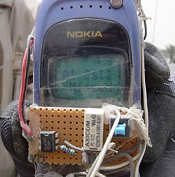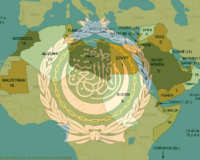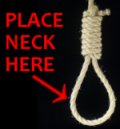 The winner of today’s breathlessly exaggerated headline contest goes to the Bureau of Industry and Security (“BIS”) for this:
The winner of today’s breathlessly exaggerated headline contest goes to the Bureau of Industry and Security (“BIS”) for this:
COMMERCE DEPARTMENT, GOVERNMENT PARTNERS, BREAK UP IRANIAN RING CHARGED WITH PROCURING IED COMPONENTS
Although this headline conjures up a Eliot Ness raid with the culprits being led off in shackles and at gunpoint never to export again, the reality is a bit more mundane. In fact, the headline refers, in part, to a federal grand jury indictment unsealed in Miami today against eight individuals and eight corporations, all allegedly part of the Mayrow General Trading Company network. The defendants were charged in connection with dual-use exports that wound up in Iran, including exported items which could be used in the manufacture of IEDs deployed against U.S. troops in Iraq.
None of the eight individuals or corporations are located in the United States. Whether Britain, Germany, Iran and Malaysia, where the defendants are located, will permit the extradition and prosecution of the individual defendants is a close question, particularly if the defendants’ only contacts with the United States were the purchase of U.S.-origin goods and if the exports to Iran did not break the laws of their countries of residence. (For those individuals located in Iran, of course, it’s not even a close question, and these individuals will be subject to prosecution only if they decide to visit, say, Disneyland or the Grand Canyon or travel to a country that will allow rendition or extradition.)
In addition, the Commerce Department release indicated that 75 companies and individuals had been added to the Entity List in connection with the Mayrow network exports. (The State Department release on the indictment, however, states that there were 100 additions to the Entity List). All exports of U.S.-origin goods to companies and individuals on the Entity List will require a license from the Department of Commerce. Naturally such licenses will generally be denied.
As of this writing, however, the BIS website doesn’t indicate any additions to the Entity List, but it can reasonably be assumed that these additions will appear sooner rather than later. Unlike indictments of foreigners over which the U.S. has precarious criminal jurisdiction, putting members of the network involved in these exports on the Entity List is much more likely to be effective in shutting down the troublesome exports. Once these additions are made, I’ll post a link identifying the companies and individuals involved.

 Posted by
Posted by  Category:
Category: 

 The Bureau of Industry and Security (“BIS”) released Settlement Agreements that the agency entered into with
The Bureau of Industry and Security (“BIS”) released Settlement Agreements that the agency entered into with  Back in November, Pennsylvania-based Colorcon, a manufacturer of specialty chemicals for the food and pharmaceutical industries, agreed to pay $39,000 to the Bureau of Industry and Security, based on alleged violations of BIS’s anti-boycott regulations. According to the
Back in November, Pennsylvania-based Colorcon, a manufacturer of specialty chemicals for the food and pharmaceutical industries, agreed to pay $39,000 to the Bureau of Industry and Security, based on alleged violations of BIS’s anti-boycott regulations. According to the  The Bureau of Industry and Security (“BIS”) has
The Bureau of Industry and Security (“BIS”) has  A
A 

